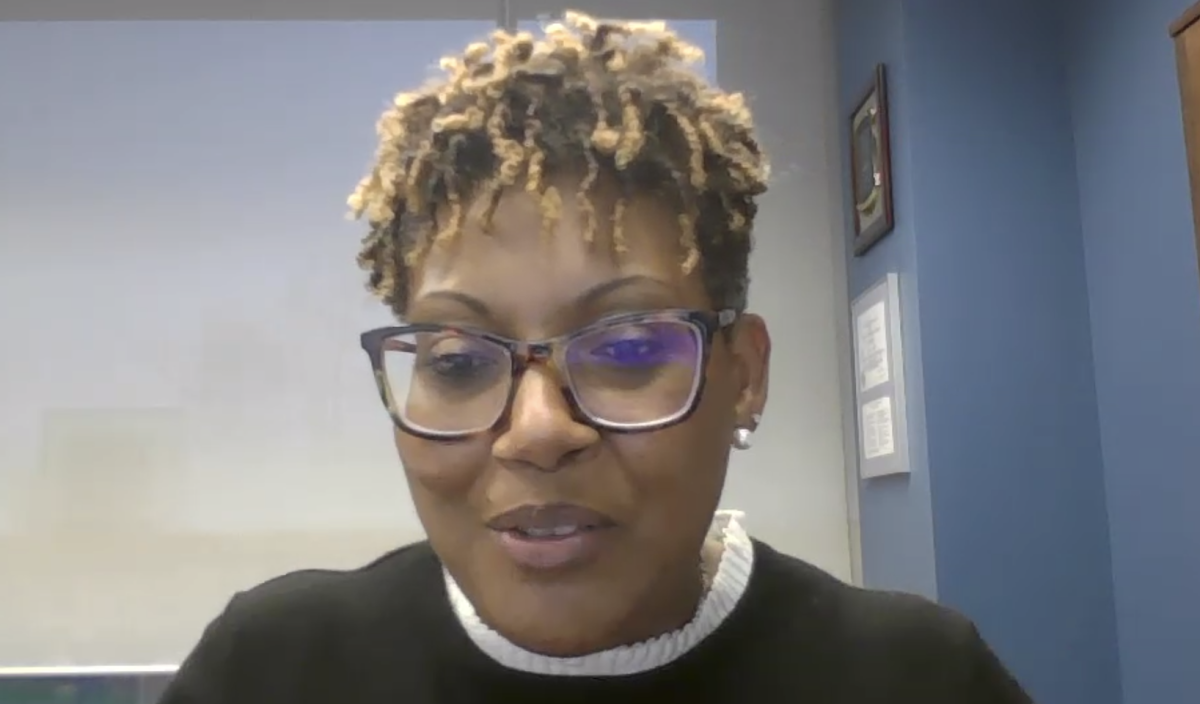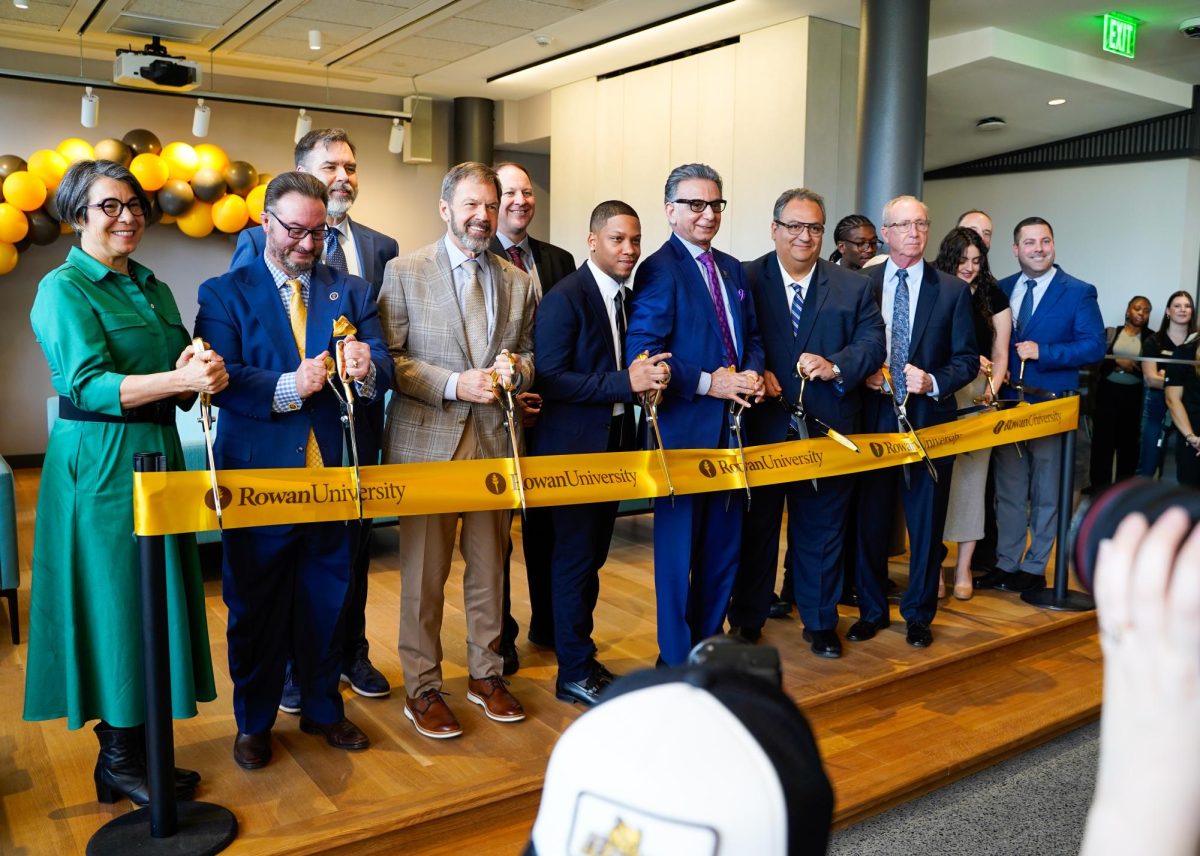On Thursday, Nov. 12, Rowan’s Division of Diversity, Equity, and Inclusion (DEI) hosted “Surviving Elections: Ensuring Civil Discourse in the Workplace,” which featured faculty from different areas of management at Rowan.
Hosted by Dr. Penny McPherson-Myers, vice president of DEI, this event sought to find the best way to cultivate a civil work environment during trying times, specifically the election season.
“The discussions are especially difficult this year because we are so divided in our political beliefs, which are viewed as an extension of ourselves. Some organizations do ban political discussions, but as an institution of higher education, we really want to find a way for employees to engage in the discussion,” said Terri Drye, Rowan’s vice president for human resources.
“We need to be aware when having political discussions that we are state employees and a [501(c)(3)] charitable organization, so there is a restriction in engaging in a political discussion that relates to a specific candidate.”
According to Drye, employees are permitted to discuss the electoral college during work hours, for example, but not reasons for supporting a specific candidate.
Drye also recommended limiting the political discussion to breaks or lunchtime, as well as listening to an opposing side, respecting alternative opinions and always declining a conversation if you are uncomfortable.
The panelists shared the sentiment that too much news is detrimental to mental health and often affects civil discourse in the workplace.
“With 24/7 media coverage and the constant stream of social media, it can undoubtedly make people feel on edge. But at the end of the day, we have to remember we have a choice; more so a choice in what we listen to and how much we listen to it,” said Dr. Vaughn A. Calhoun, the assistant vice president of academic innovation at Rowan.
“It can really work you up in ways you don’t know that manifest. Don’t let the hysteria of news shows engulf you. Watch just enough to keep you informed, then disconnect. So I challenge everyone to acknowledge what they can control and what they consume.”
The discussion also featured ways managers can stay connected and promote discourse, specifically during a pandemic.
Dr. Susan Lehrman, the Dean of Rohrer College of Business, believes managers should be actively reaching out and engaging with faculty disconnected from their jobs because of the pandemic.
“I think the single most important thing for a manager to do at any time, but particularly at this time, is to keep the lines of communication open. I know that that’s both much harder and more important during a pandemic with so many racial issues going on simultaneously,” Lehrman said.
“I’ve tried to make a little bit of time every day to reach out to faculty and staff that I haven’t connected to in a while — not to talk about work, but just how they are doing.”
Dr. Stephen Scheinthal believes it’s more difficult now than at any time to facilitate a healthy and civil discussion at the workplace.
“The challenge I think that leadership faces is being able to listen and know when to step in; to know where that line is. To allow the discussion to go on but to be able to be an ally,” said Scheinthal, professor and chair of the Department of Psychiatry at Rowan University School of Osteopathic Medicine (RowanSOM).
“It gives people who may be bringing bias and stereotypes to the table a moment to pause because we all want to have an open-door policy in terms of the discussion. But there’s a discussion, and there’s a really inappropriate discussion. That balance is tricky.”
Calhoun agreed with Scheinthal’s sentiment regarding the delicate situation managers find themselves sandwiched between, but at the same time stated that limiting some of the more controversial discussions could negatively affect staff.
“When things are said that aren’t appropriate, you need to be able to call those words or phrases out. Otherwise, you give tacit permission that it’s okay to say those things; at the same time, as [Dr. Schienthal] was saying, we can’t just ban political conversation altogether,” said Calhoun.
“There are some individuals or groups of people who feel rendered invisible because of what’s happening on the national stage. If certain topics are taken off the table, in a way, you could be sanctioning one ignorance at best, and at worst, be giving aggression towards an individual.”
The full panel video can be found on DEI’s page on the Rowan website. The next virtual DEI panel will be on Tuesday, Jan. 19, from noon to 1:30 p.m. and called “What Do We Do Now? Activism, Advocacy and Coalition Building.”
For comments/questions about this story, email [email protected] or tweet @TheWhitOnline.

























































































































































!["Working with [Dr. Lynch] is always a learning experience for me. She is a treasure,” said Thomas. - Staff Writer / Kacie Scibilia](https://thewhitonline.com/wp-content/uploads/2025/04/choir-1-1200x694.jpg)













































